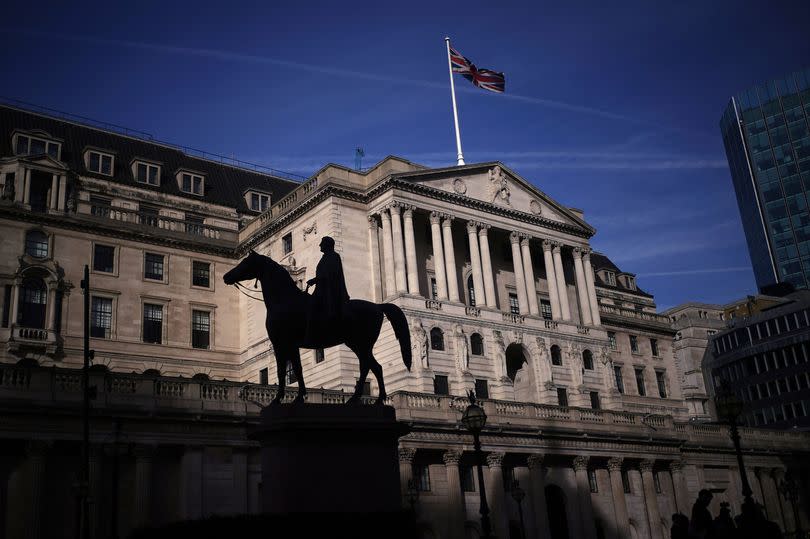Bank of England to make interest rate announcement next week as cuts 'somewhat closer'

The Bank of England (BoE) will announce its latest review of the interest rate next week.
The Bank's Monetary Policy Committee (MPC) will meet on Thursday, May 9, to decide whether they will increase interest rates, decrease them, or keep them the same. Currently, interest rates have been frozen at 5.25 per cent and have remained at that level for the past few months.
The interest rate, often referred to as the base rate, is used by banks to help determine their mortgage rates for customers alongside other payback loans. This means any changes to the base rate could have a direct effect on your personal finances.
Read more: Interest rate cuts 'somewhat closer' than last month ahead of Bank of England announcement
Consumer Price Index inflation dipper to 3.2 per cent in March and is expected to move closer to the Bank's 2 per cent target rate in April, following another drop in energy prices. Meanwhile, according to the British Retail Consortium, the latest annual shop price inflation slowed to 0.8 per cent in April, compared to 1.3 per cent in March.
Helen Dickinson, BRC chief executive, said the latest figures displayed that prices were "showing signs of normalising providing relief to households".
What could happen to interest rates next week?
One of the largest economic factors that may affect the Bank's interest rate decision this month is the latest increase to the UK's minimum wage. With the national living wage shooting up by almost 10 per cent, some economists previously warned that it could make it harder to keep inflation low.
Ashley Webb, UK economist at consultancy Capital Economics said: "The fear is that the rise this year will contribute to stickier wage growth and inflation.”
However, some have downplayed the impact, with only around 4.9 per cent of the UK workforce due to impacted by the increase. Experts at Morgan Stanley said: "While there are some nuances around existing premiums to the currently mandated national living wage in low-paid sectors, and whether these compress in a looser labour market, last year’s pay beats in spring came on the back of IT, finance and professional services sector pay – not any outsized surprises on low-paid sectors.”
The Bank itself has indicated that it wants to see signs that wage growth is cooling down before it begins cutting rates. EY Item Club chief economic adviser Martin Beck said the Bank of England will likely want to assess the impact of wage growth before introducing any significant cuts to interest rates.
He said: "Following accusations that policymakers were behind the curve in tightening policy when inflation was heading up, the MPC may well decide it’s appropriate to exercise further caution in bringing rates down. Assessing the effect of April’s large rise in the national living wage on broader pay growth offers another reason for inaction for the time being.”
Earlier this month, the Bank of England's chief economist Huw Pill highlighted that the economic outlook has not changed substantially but that cuts to interest rates may be 'somewhat closer' now than they were last month. In a recent speech in London, Mr Pill said: “The combination of little news and the passage of time have brought a bank rate cut somewhat closer. But the same lack of news gives me no reason to depart from the baseline that I already established.”
He added that the steady drop in inflation means "the outlook for UK monetary policy in the coming quarters has not changed substantially since the beginning of March".
He continued: "“After several years of above target inflation rates and given the threat of persistent inflation dynamics becoming embedded in expectations, in my view there are greater risks associated with easing too early should inflation persist rather than easing too late should inflation abate. This assessment further supports my relatively cautious approach to starting to reduce bank rate.”
Bank governor Andrew Bailey has previously said the economy is “not yet at the point” where rates can be lowered, but things are “moving in the right direction”. Markets are currently pricing in a reduction of interest rates to around 4.5 per cent by the end of the year.

 Yahoo News
Yahoo News 